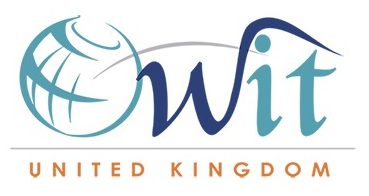Opening Remarks:WTO Deputy Director-General Anabel González.
Panelists: Jessica Espinoza, CEO 2x Collaborative Europe; Inez Murray, CEO, Financial Alliance for Women, Jennifer Buckley, Founder and Managing Director SWEEF Capital, Singapore; Susan Barton, Head, Trade Strategy and Outreach, FCDO UK Department of Trade and Investment.
Respondents: Kevin Shakespear, Director Strategic Projects & International Development, Institute of Export and International Trade; Marijn Wiersma, 2XCollaborative; Fiorina Mugione, Regional Director ACP, GDSI.
Moderator: Deepesh Patel, Editorial Director, Trade Finance Global.
The session was skilfully moderated by Deepesh Patel who animated the panel and the discussion. The Deputy Director – Anabel Gonzalez of WTO delivered a keynote address, initially recorded but then she decided to attend and exchanged with the participants giving the session more visibility.
The panellists reviewed both the roadblocks for women in accessing finance as well as the scope and success of new initiatives. First, all the panellists stated that women and finance does not only concern women in business. It also matters for women as leaders, employees, and consumers.
2x Collaborative stresses that gender lens investors look at gender across the value chains and distribution channels across the various sectors. CEO Jessica Espinosa explained how the foundation uses a framework to invest that encompass leadership, enterprise, employment, processing, and services. 2x Collaborative registered 11 billion invested in 3 years and has a target of 15 billion in the next 2 years.
The other panellists explained the lack of data, the role of fintech and the importance of access to networking and recognition for women.
Respondent Fiorina Mugione in her remarks commented that the current trade finance and insurance instruments are not women friendly because women in business do not work in the value chains that receive most of trade finance either by size of business or sector. Key performance matrix is usually favourable to women, but they often are isolated and lack the self-confidence to pursue either business growth or other economic goals that require financing. Among the solutions offered: create more awareness; catalyse investment through hackathons, scale-up fintech, ensure early-stage investors to ask the right questions (% of female in the company, % of female in the sales etc).
Similarly Respondent Kevin Shakespeare from the Institute of Export and International Trade reflected on data, stressing that the more detailed and disagregated data available, the more the data can be drilled down to enable informed decisions as a finance provider or supplier.
I think in any business, especially women business, the more data you can give the better. So to use an example, we have Companies House in the UK, you only need to put your current assets, you really need to separate what is cash at banks, what is stocked? What is debtors? Because how can you take an informed decision as a finance provider or supplier to provide credit terms. So the more education around some, some quick wins is really important. We referred to invoice discounting and export credit insurance, the concept is relatively straightforward, yes, the execution is slightly different. But export credit insurance. Effectively you call it bad debt insurance, invoice discounting, you just discount an invoice, the concept is there and the understanding of it is there. And I think going forward some of these simple explainers can can really bring it out without having to go into the depth of how to do it. It’s the it’s the simple practice. So going forward, thinking about distributed ledger technology and digital trade corridors. ESG ratings are going to be key advanced supply chain data. So the more data that women can provide in the commercial invoice, the packing list, the origin certificate, the greater chance that they’ll have to, to access the finance system and trade finance to future.
All speakers stressed the need to promote financial literacy. The SWEEF approach, as explained by CEO Jennifer Buckley, is holistic and provides a database with 24 parameters. One panellist stressed the need to look also at the client perspective and to respond to their needs.
Susan Barton provided analysis of gender lens investment in the UK, and explained the commitment to improve better data and use that for financial inclusion in the UK. The head of the Department also explained the UK Government’s support to global programmes such as SheTrades of ITC. She also referred to the G20, World Bank We-Fii initiative and the UK Finance Code, Investing in Women, as a model for action.
